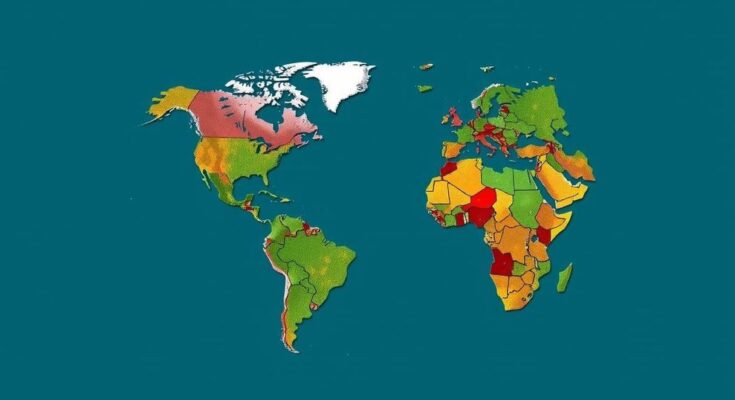At the COP29 climate talks in Baku, developing nations rejected a draft deal proposing substantial climate financing from wealthier countries. Activists demonstrated for more significant aid, highlighting the disparity between proposed funding and the funds needed to combat climate change. With increasing tensions and dissatisfaction evident, the outcome remains uncertain as negotiators face pressing time constraints.
The ongoing United Nations climate talks in Baku, Azerbaijan, entered a state of disarray as developing nations adamantly rejected a proposed draft deal concerning climate financing. Negotiations had escalated tensions as nations vied for a workable agreement, primarily focused on financial aid for poorer countries to combat climate change. A rough draft that proposed a significant increase in funding was met with dissatisfaction, leading to walkouts from key delegations, including those representing the Least Developed Countries (LDCs) and small island states.
Activists demonstrated outside the summit, expressing their grievances towards the perceived inaction of wealthier nations in addressing climate concerns. While the draft initially aimed to assign $250 billion annually by 2035 from affluent countries to assist their less fortunate counterparts, this figure runs considerably short of the annual $1 trillion required, according to climatic experts. Furthermore, many developing countries are currently seeking approximately $1.3 trillion to better equip themselves against the immediate effects of climate change and transition to sustainable energy systems.
The atmosphere among negotiators has been tense, as rich nations have been accused of a war of attrition in attempts to minimize their commitments under international climate accords. There is a growing concern that developing nations may be coerced into accepting inadequate compromises as time runs out, in light of impending travel commitments for many delegates. Activists, along with several representatives from developing nations, articulated their discontent with the ongoing discussions, emphasizing the urgency for a more substantial and equitable resolution toward climate financing.
The negotiations at the COP29 climate summit are crucial in determining financial aids to developing nations struggling with the impacts of climate change. Under previous agreements, particularly the Paris Accord, affluent nations have pledged to support vulnerable countries, yet actual funding often falls short of stated commitments. The contentious environment at COP29 reflects broader global tensions regarding discrepancies in climate action and financial contributions among different economies, further complicated by activists demanding stronger commitments from wealthier nations.
The rejection of the climate cash proposal at COP29 underscores the challenges and divisions facing international climate negotiations. The insistence of developing nations on receiving adequate financial support to tackle climate-related issues reflects a critical need for richer countries to honor their commitments. If unresolved, the current tensions may impede global climate efforts and exacerbate the repercussions of climate change on vulnerable populations. Moving forward, it is imperative that all stakeholders engage in constructive dialogue to achieve a more equitable financial arrangement that truly supports global climate resilience.
Original Source: apnews.com




